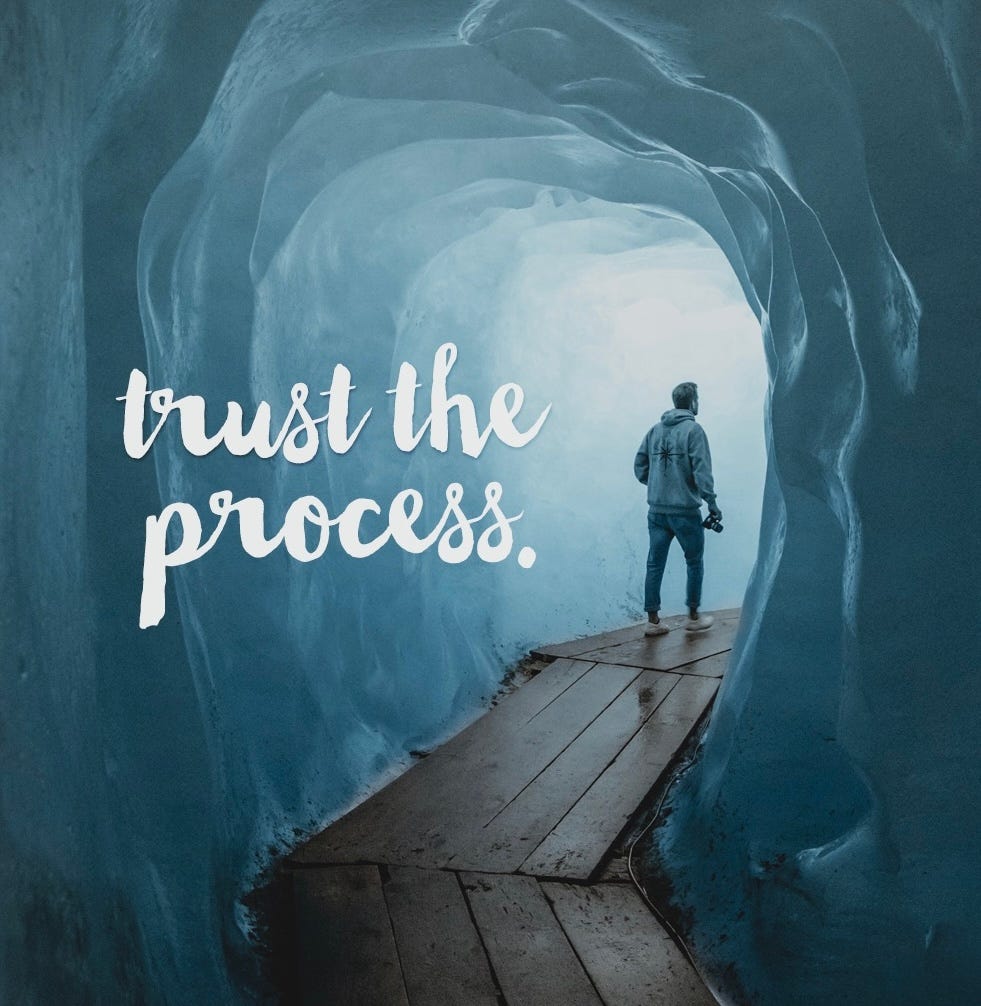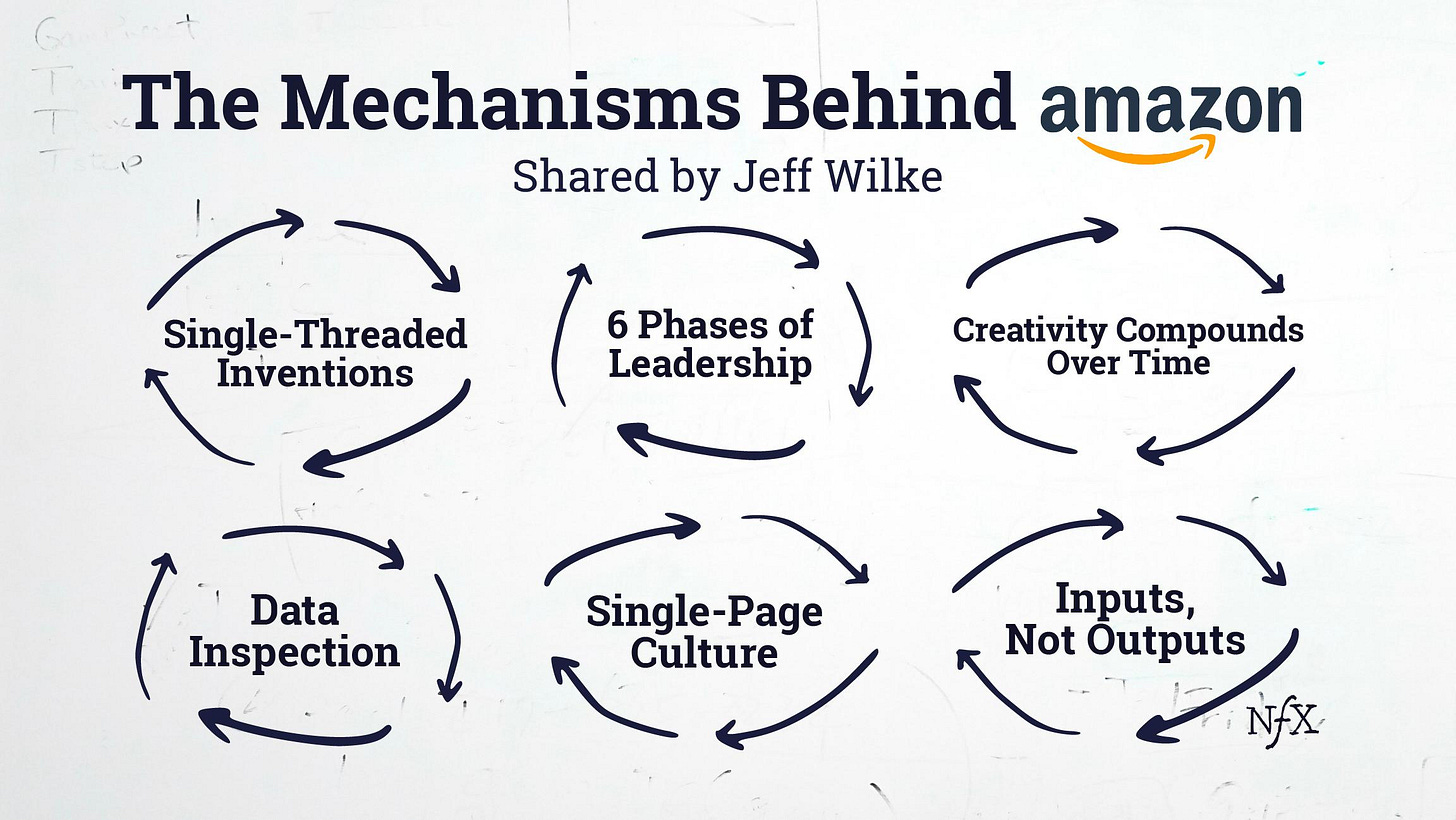I decided to create a section called THE CONTRARIAN. Here I reflect on popular phrases and take the opposite side of their fundamental premise.
Even if there are relative truths to be found in them, I propose a contrarian view to the universal wisdom they claim.
"The joy of life consists in the inevitable, continual triumph of new values over the old. But all values are values of growth, not of journeying, but of process."
Friedrich Nietzsche, Philosopher
“Life is not a state of journeying while being, but the endless process of becoming.” (me)
In our society there is constant pressure to be more, to have more, to do more… and this can take a toll on our mental health. But is this what I mean when I say that life is not a journey but a process? Do I imply that we need to live under constant pressure to become something else? Why can’t we just be?
I don’t think there is a right answer for every person on this planet to these questions. But I am convinced of something… that even to ‘simply be’, to sit back and enjoy “the journey of life” we need to continuously grow. It cannot be a passive act of getting from here to there. We need growth in self-awareness, in empathy, in the ability to have better conversations, in patience, in being present, in mindfulness, in asking better questions; in seeking to understand what the people we love need from us at different moments in our (their) lives.
Even if ‘simply being and enjoying the journey’ is all there is, I have no doubt that in order to have a positive impact in people’s lives and leave a legacy behind… we need to develop competencies we don’t yet have within who we are, but not just be who we are.
We all come across people (and ourselves) who talk about life as a journey. While this idea is appealing in its simplicity and we use it to describe the experiences that make our life, I challenge you to consider a different perspective, that life is not a journey but a process.
The journey metaphor can imply that life has a final destination, or at least many stops to look for. No matter how metaphysical our idea of “journey”, nobody embarks on a journey just to flow in it, rather to get somewhere one way or another.
This way, if life is a journey, our purpose relates to reaching some place or some state; and that in itself can create undue pressure to constantly move forward, at the expense of enjoying and learning from the present moment. Life is actually full of twists and turns, it is impossible to predict where we will end up.
So what is life then? A random even we have no control or? That’s not the case either; we need to think different and focus on the process of living, adapting to life's challenges and finding meaning in our experiences.
A process-oriented approach recognizes that growth and development happen gradually over time, with no set endpoint. This perspective allows us to focus on the steps we need to take every step of the way, without feeling the need to rush towards a destination. Being process-oriented as a leader, helps create a more agile and adaptable organization, open to change and better equipped to navigate the challenges of rapidly evolving landscapes.
Inspiring leadership stories
(1) There are many stories that exemplify why life is not a journey but a process, but one that stands out from a leadership perspective is the story of Steve Jobs.
Throughout his life, Steve Jobs was known for his innovative spirit and his ability to disrupt established industries. He was a visionary leader who transformed the world of technology and created products that have changed the way we live, work, and communicate.
However, Steve Jobs' success was not the result of a journey with a clear destination. Rather, it was the result of a lifelong process of learning, growth, and development. From his early days as a college dropout to his rise as the CEO of Apple, him being fired from Apple and his return to Apple, Jobs was constantly evolving and adapting to the challenges he encountered.
An example of this process-oriented mindset can be seen in Jobs' approach to failure is reflected in his famous commencement speech at Stanford University; where Jobs said, "I didn't see it then, but it turned out that getting fired from Apple was the best thing that could have ever happened to me. The heaviness of being successful was replaced by the lightness of being a beginner again, less sure about everything. It freed me to enter one of the most creative periods of my life."
This mindset of embracing the process of life, even in the face of setbacks and failures, is a powerful example of leadership. It demonstrates the importance of being adaptable, resilient, and open to learning, even when things don't go as planned. Specially when things don’t go as planned.
The story of Steve Jobs shows that success is not a destination to be reached, but a result from ongoing learning, growth, and development.
(2) Another story from the business world that exemplifies why life is not a journey but a process comes from Amazon.
Early on in Amazon's history, the company faced a significant setback when their new online auction platform, zShops, failed to gain traction with customers. Those were the times where Ebay was king. Despite significant investment and promotion, the platform failed to generate the sales that Amazon had hoped for, and it seemed that the company had made a significant misstep. It was a clear and expensive failure.
Rather than seeing this failure as the end of the road, Jeff Bezos and his team recognized it as an opportunity to learn and grow. They began to analyze customer feedback and behavior, looking for insights that could inform their next steps. This process of reflection and learning led them to pivot their strategy, shifting the focus from zShops to Amazon Marketplace - a platform that allowed third-party sellers to list their products on Amazon's site. This was a profound shift in strategy from where they started their ‘journey’, but the process took them there.
The shift to Marketplace was a game-changer for Amazon, propelling the company to new heights of success and helping solidify their position as a dominant force in the e-commerce industry. However, this success was not the result of the"journey" from failure to success. Rather, it was the result of a continuous process of demonstrating curiosity to learn from the insights of a failed business, actually learning, reflecting and adapting.
“Most people think product innovation and growth are what drive profits + outcomes. However in practice, operational excellence is the key driver to executing consistently for the long term. This is how you harness creativity that compounds value over time.” by James Currier Apr 2021, The post is called "The CEO That Jeff Bezos Called “His Teacher” (NFX)
Let’s extrapolate and look at the sentences that make this paragraph:
The first sentence can be seen as an equivalent to “life is a journey” because the thinking implies that you innovate and grow to ultimately get to a destination.
However the second sentence speaks more eloquently to the idea of “life as a process” where value compounds over time by embracing consistency and excellence in what we do. There is no mention of outcomes or destination, but of process.
Ultimately, it is this commitment to ongoing growth and development that sets successful leaders (people) apart and helps them achieve their goals over the long term (legacy).
By embracing life as a process, we can cultivate a deeper sense of purpose and become the better versions of ourselves over time, compounding growth and helping lift others along the way.
Eventually… even if life is indeed a journey, it is at least one with an infinite horizon.
P.S. Before I go, here you have “The Treat,” where I share some of the music that made me company while writing … Enjoy as you bid farewell to this post
“Lead yourself, Learn to live. Lead others, Learn to Build.”
If you enjoyed reading this post consider subscribing to the newsletter, joining the community and sharing your thoughts.










Love this quote Sebastian, "Most people think product innovation and growth are what drive profits + outcomes. However in practice, operational excellence is the key driver to executing consistently for the long term. This is how you harness creativity that compounds value over time." Where is it from?
Great insights. Thank you! It has become so generic to talk about ‘the journey’ instead of the experiences that shape life ie process. Steve Jobs didn’t have a clear destination from A to B and accepted the turns and twists of life to become successful. Sometimes the journey is shaped by just events that are ‘happening’ around us. In business, what we do when these events happen will shape the decisions we or others take. It’s process.